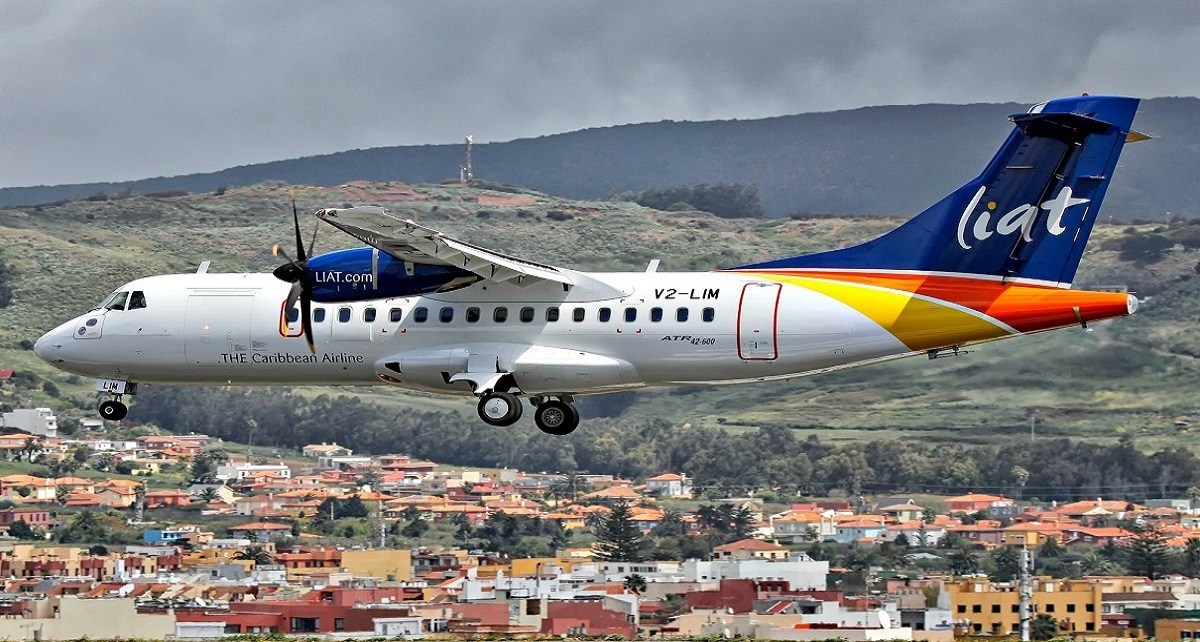
By Ramesh LatchmedialThe matter of intra-regional air transportation has been talked about for decades by regional governments and yet there are no tangible plans to positively address this matter that seriously impacts social and economic development, particularly in the eastern Caribbean. There have been numerous studies done on air connectivity in the Caribbean region containing recommendations that have fallen on deaf ears.
The West Indian Federation was established in 1958 in accordance with the British Caribbean Federation Act of 1956 with the aim of establishing a political union among its ten members. It had embarked also on negotiations for the federation to acquire the subsidiary of the British Overseas Airways Corporation (BOAC), British West Indies Airways (BWIA).
With the demise of the federation in January 1962 due to the unwillingness on the part of most territorial governments to give up power to the federal government with headquarters in TT, BWIA was acquired by the TT government.

Reality is that after 60 years of talks, the region is no closer to resolving the issue of air transportation and what is being said today about solving the region’s air transportation problems has been said over and over for decades like a stuck record.
The global air transport industry is being rapidly liberalised with less restrictive economic regulations and the emergence of ‘open skies’ air service agreements. Regional airlines will face more competition from extra regional airlines underscoring the need to cooperate, consolidate and perhaps integrate operations.
Regional air transportation was somewhat low-key at the 43rd regular meeting of the Conference of Heads of Government of the Caribbean Community (Caricom) which was held in Suriname during July 3-5, 2022. The communique issued at the end of the meeting made no reference to regional air transportation, a topic which dominated the agendas for many Caricom conferences.
However, at the closing press conference, the lead prime ,minister for transportation, Dr Ralph Gonzales, stated that the issue of regional air transportation was discussed by the prime ministers of Antigua and Barbuda, Grenada, St Lucia, St Vincent and the Grenadines, Barbados, and the president of Guyana who agreed to address the issue of a regional air carrier of some kind and suggested the revival of LIAT 1974 Ltd. Gonzales further alluded to the engagement of an aviation consultant to “put a framework together and some numbers” and stressed the urgency of the matter. To date there has been very little movement on this issue.
St Lucia’s Prime Minister Phillip Pierre pointedly told the conference that “unless one of our islands owned carriers emerges as a truly regional carrier, not only in terms of countries covered, but with a philosophical commitment to making regionalism work for Caricom citizens, then our regional aspirations will continue be an elusive dream.”
For years it was the dream of some Caricom heads, including former TT prime minister Patrick Manning, to establish a single regional airline within the region. Such an airline would be owned by the regional governments with an appropriate aircraft fleet to serve a route network with strategically placed hubs. In 2006 after attempts to get work rule concessions from the employee unions failed, Manning shut down BWIA on December 31, 2006 and the newly formed Caribbean Airlines Ltd (CAL) seamlessly took over the BWIA routes with effect from January 1, 2007. It was envisaged by Manning that CAL by its very name would be the nucleus of a truly Caribbean airline merging with Bahamas Air, Cayman Island Airways, Air Jamaica (now defunct) LIAT and Suriname Airways under a revised ownership and governance structure.
During his feature address at TT Manufacturers’ Association’s (TTMA) dinner and awards ceremony at the Hyatt Regency, Port of Spain on November 15, 2022, Grenada Prime Minister Dickon Mitchell called for better intra-regional air transportation which he said it is currently a great challenge to get from one Caribbean country to the other.
Caricom states that signed the revised Multilateral Air Services Agreement that came into effect on August 17, 2020 committed to the establishment of a single market for air transport services consistent with their obligations under the Revised Treaty, which requires the establishment of a framework within the Community for the liberal exchange of route, traffic and other air transport rights in the context of traffic requirements, the promotion of healthy competition and growth in the air transport sector and improved efficiency and quality of air transport services for consumers.
Therefore, the real solution to the regional air transportation woes is the formation of a single Caribbean airline owned by the regional countries and private investors with an appropriate governance structure and operating a suitable fleet of long, medium and short haul aircraft with strategically placed hubs as envisaged by Manning in 2006.
Regional insularity is a major obstacle to the formation of any single Caribbean airline. It is time for regional governments wake up, face reality and give true meaning to regional integration and the single market and economy.
As the old saying goes, regional governments should “put their money where their mouths are.” If not, regional integration will be a myth and meaningful regional air transportation will continue to be an elusive dream.
Advertise with the mоѕt vіѕіtеd nеwѕ ѕіtе іn Antigua!
We offer fully customizable and flexible digital marketing packages.
Contact us at [email protected]













